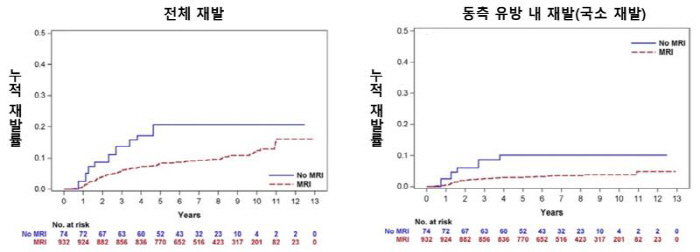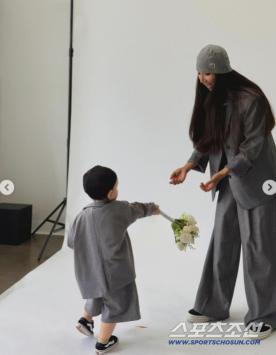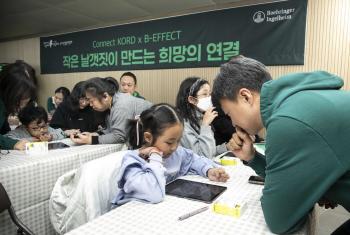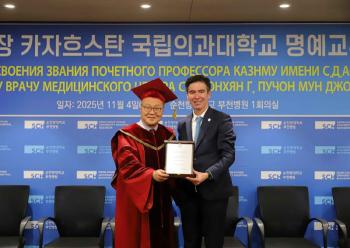Breast cancer patients under 50 years old, preoperative MRI reduces recurrence in the ipsilateral breast
Nov 05, 2025
|
Breast cancer has a different recurrence pattern depending on the presence or absence of hormone receptors, and hormone receptor-negative breast cancer has a higher recurrence rate than positive. Breast cancer patients under the age of 50 often have dense breast tissue, making early diagnosis difficult and having a high incidence of hormone receptor-negative breast cancer. In addition, the possibility of recurrence (local recurrence) in the ipsilateral breast after surgery is also high, so the use of ' breast MRI' before surgery is on the rise for accurate diagnosis and optimized surgery.
Breast MRI is the most sensitive breast cancer test, so it can also detect tumors missed by mammography and ultrasound. However, the effect of preoperative MRI examination in young patients on long-term prognosis, especially by hormonal receptor status, has not been clearly identified.
Professor Ha Soo-min and Professor Yeon Hee-ra of the Department of Radiology at Seoul National University Hospital and Professor Kim Hong-kyu of Breast Endocrine Surgery announced the results of comparing the long-term prognosis of 4,414 breast cancer patients under the age of 50 who underwent surgery from 2011 to 2017.
The research team divided the entire patients into MRI group (4118 patients) and non-MRI group (296 patients) to statistically correct age, stage, and tumor size. After that, the median value was tracked retrospectively for 7.7 years, and the cumulative recurrence rate for 5 years was analyzed.
As a result, there was no difference in the overall recurrence rate between the MRI group and the non-MRI group, but the ipsilateral intramammary recurrence rate was significantly lower in the MRI group (1.6% vs. 3.3%).
As a result of sub-analysis according to hormone receptor status, preoperative MRI examination effect was evident in the 'hormone receptor negative' group. The MRI group in this group not only had a significantly lower rate of recurrence in the ipsilateral breast than the non-MRI group, but also reduced the overall risk of recurrence by more than 60% (8.2% vs. 20.7%). On the other hand, there was no significant difference in the hormone receptor-positive group.
The research team explained that in the case of hormone receptor-negative breast cancer with high risk of recurrence and low hormone treatment responsiveness, preoperative MRI tests can help establish accurate diagnosis and treatment plans and contribute to prevention of recurrence.
On the other hand, there was no significant difference in long-term survival, zone (lymph node and nearby site) recurrence rate, contralateral breast recurrence rate, and distant metastasis incidence with preoperative MRI or not.
Professor Ha Soo-min (Radiology Department) "This study is a long-term follow-up of MRI results in young breast cancer patients, especially in the hormone receptor negative group, confirming the distinct effect of preventing recurrence of preoperative MRI."This result is expected to provide a basis for selective MRI application for breast cancer patients under 50 years of age and contribute to the establishment of imaging strategies according to tumor type."
The results were published in the international journal `Radiology (IF; 15.2)' in the field of radiology.
|
This article was translated by Naver AI translator.















